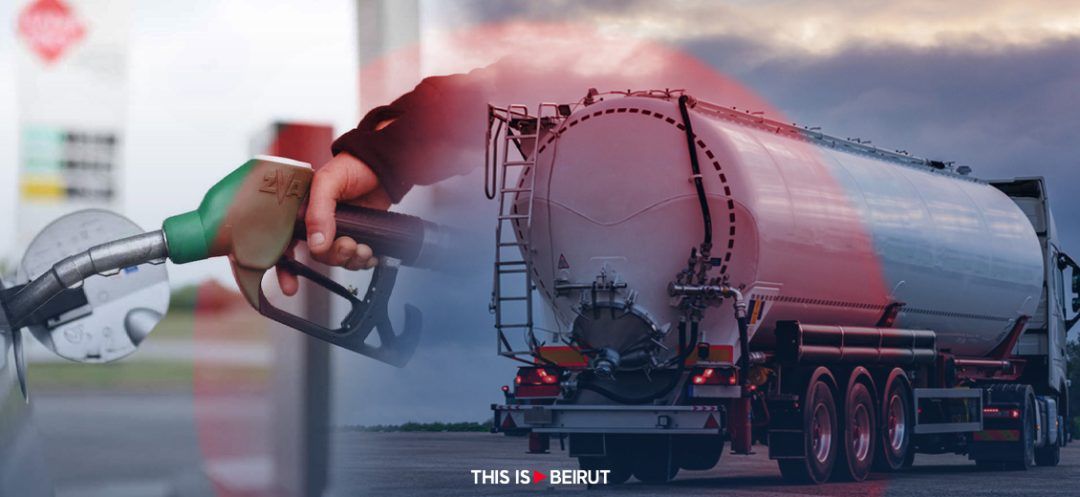
Twenty-four hours after the Association of Oil Importing Companies declared the suspension of fuel deliveries in protest against the 10% exceptional tax levied on businesses benefiting from the subsidy policy introduced by the state in 2020 and 2021, a solution seems to be looming on the horizon.
The president of the association, Maroun Chammas, assured This is Beirut that “there’s currently no fuel crisis.” He explained that “after intensive meetings with numerous officials involved in the issue and based on statements and clarifications provided by several MPs representing different parliamentary blocs, it seems that the 10% exceptional tax imposed on businesses benefiting from subsidies introduced by the Central Bank of Lebanon (BDL) focuses on profits rather than sales or business volume.” He asserted, “That’s a positive development.”
This suggests that the amounts to be paid are significantly lower than the estimated sum of 800 million dollars, which corresponds to the tax based on business volume. “We are waiting for the final version of the budget, expected to be published in the official gazette in the coming days,” added Chammas.
Importing companies are therefore poised to resume their deliveries of oil products in the next few hours.
According to reliable sources, MP Wael Bou Faour of the Progressive Socialist Party (PSP), supported by his colleague Georges Adwan of the Lebanese Forces (LF), is said to have introduced this article into the budget at the last minute.
The Ministry of Energy and Water has disclaimed responsibility for the “confusion in the fuel sector,” recognizing businesses' concerns regarding the ambiguity of the exceptional tax in question. Stating its inability to “defend or refute this law,” the ministry indicated in a communiqué that it is awaiting to see what “will be definitively and clearly approved in Parliament.”
According to the Ministry of Energy, “if this exceptional fee is adopted, it should be deducted from the profits earned and not from the revenues or the value of the imported quantities, as it is the consumer who has benefited from the subsidy and reduced rates.”
The Syndicate of Wheat Importers and the Butchers Union and Livestock Traders Syndicate contested the introduction of this fee, asserting that “a tax cannot be imposed on a policy adopted by the state.”
The president of the association, Maroun Chammas, assured This is Beirut that “there’s currently no fuel crisis.” He explained that “after intensive meetings with numerous officials involved in the issue and based on statements and clarifications provided by several MPs representing different parliamentary blocs, it seems that the 10% exceptional tax imposed on businesses benefiting from subsidies introduced by the Central Bank of Lebanon (BDL) focuses on profits rather than sales or business volume.” He asserted, “That’s a positive development.”
This suggests that the amounts to be paid are significantly lower than the estimated sum of 800 million dollars, which corresponds to the tax based on business volume. “We are waiting for the final version of the budget, expected to be published in the official gazette in the coming days,” added Chammas.
Importing companies are therefore poised to resume their deliveries of oil products in the next few hours.
According to reliable sources, MP Wael Bou Faour of the Progressive Socialist Party (PSP), supported by his colleague Georges Adwan of the Lebanese Forces (LF), is said to have introduced this article into the budget at the last minute.
The Ministry of Energy and Water has disclaimed responsibility for the “confusion in the fuel sector,” recognizing businesses' concerns regarding the ambiguity of the exceptional tax in question. Stating its inability to “defend or refute this law,” the ministry indicated in a communiqué that it is awaiting to see what “will be definitively and clearly approved in Parliament.”
According to the Ministry of Energy, “if this exceptional fee is adopted, it should be deducted from the profits earned and not from the revenues or the value of the imported quantities, as it is the consumer who has benefited from the subsidy and reduced rates.”
The Syndicate of Wheat Importers and the Butchers Union and Livestock Traders Syndicate contested the introduction of this fee, asserting that “a tax cannot be imposed on a policy adopted by the state.”
Read more



Comments